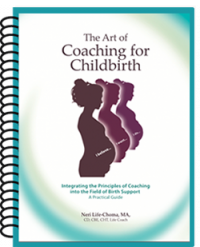
Navigating the Epidural Dilemma
What’s the Epidural Dilemma?
Pregnancy and childbirth are incredibly transformative experiences. Unfortunately, our culture has reduced the conversation about this utmost transformation to one topic: labor pain. Whether on social media, in moms’ groups, or on the playground, individuals undergoing their childbearing years’ discussions focus solely on fear and coping with labor pain. This narrow focus can make them preoccupied with deciding whether to take an epidural. It doesn’t help much that their guides, birth support professionals, also tend to distinguish between “Natural/Unmedicated Birth” and “Medicated Birth.” The first option is often idealized, whereas the latter is viewed less favorably. These common attitudes can result in birth givers feeling negative emotions such as disappointment or failure if they choose to take an epidural. Since the decision to use pain relief during labor is a personal choice that has emotional and social implications, I suggest helping expectant individuals to navigate this “Epidural Dilemma” with transformational prenatal coaching,
Birth givers’ dilemma: What scares me more, labor pain or the potential risks of an epidural?
For decades, maternal care agents have addressed labor pain by informing expectant persons prenatally. While agents believing in the superiority of unmedicated birth, like childbirth educators and doulas, inform pregnant individuals about the evidential benefits of physiological birth and the associated risks, medical caregivers provide convincing evidence that epidural analgesia is safe. As a result, pregnant individuals are torn between two opposing approaches relating to labor pain. How will they navigate the dilemma of taking an epidural when opposing approaches are backed by contradicting evidence?
The limitations of facts-sharing
Sharing facts about the risks of epidurals during childbirth is just as impactful as informing people about the dangers of consuming sugar. In both cases, people tend to overlook the risks involved. Furthermore, assuming that pregnant individuals are unaware of the risks involved when deciding to take or avoid an epidural is outdated. People can easily access information through a quick Google search. Therefore, informing is not an effective strategy to help individuals make better decisions and change their behavior. So, what strategy could impact your clients’ childbearing experience and their lives in the long run?
For most birthing individuals, the fear outweighs the risks, hence the dilemma! Whatever their decision will be, it is fear-based.
The power of transformational coaching
Have you ever tried using coaching strategies prenatally to help expectant individuals navigate the epidural dilemma? The context of the epidural conversation is not ‘pain medications’ or ‘possible medical interventions in childbirth. Instead, it is fear of labor pain, which is a mindset. Data can rarely lead to a mind-shift since, for most birthing individuals, the fear outweighs the risks, hence the dilemma. So when childbirth educators and doulas inform about an epidural’s possible complications and risks, their students and clients are left in a pickle. “What scares me more, labor pain or the potential epidural risks?” They can be led to believe that their choice is between bad and evil. Whatever their decision will be, it is fear-based.
Adopting positive and internal motivation
The decision-making process is impacted by negative motivation. In both cases described above, people are motivated by fear. Their motivation is to run away from something – either from pain or the risks involved with an epidural. A positive motivation would be if expectant individuals were to aspire for a specific experience or if they were motivated to achieve a desired goal. It is imperative to understand that positive motivation is far more effective than negative motivation. When confronted with challenges or obstacles, negative motivation often proves ineffective in helping them overcome these hurdles and achieve their desired objectives. Conversely, positive motivation is a far more effective approach. For instance, a woman may request an epidural during childbirth when the fear of labor pain becomes too overwhelming and outweighs potential risks.
The context of the epidural conversation is overcoming thier interna resistance and fear of labor pain; Transformationa birth coaches address clients’ mindsets
Leading a transformative coaching session to resolve the dilemma
Transformational coaching is the practice of assisting individuals in overcoming internal resistance and performing at their best. This practice assumes clients are competent and need help to overcome their fears, personal challenges, and resistance. Therefore, providing information is not a significant aspect of coaching. Instead, coaches ask questions, uncover insights, clarify issues, explore alternatives, and enable their clients to align their beliefs with their desired actions and experiences. Coaches have faith in their client’s ability to find solutions within themselves and consider personal obstacles as the root cause of difficulties rather than a lack of knowledge. Transformational coaches change LIVES. We Listen, Inquire, Vaidate, explore, and Shift!
Leading a coaching session regarding the decision to undergo an epidural may involve these steps:
- Clarifying individuals’ perceptions of labor pain and any other types of pain they may be experiencing.
- Inquiring about beliefs – How did they come to adopt this particular perspective?
- The coach must evaluate whether an individual’s understanding of labor pain, coping mechanisms, and desired birth experience are harmonious. If there is a discrepancy, meaning that their perspective hinders their ability to achieve their desired birth, the coach must reflect on it and propose exploring new perspectives.
- One way to improve your labor experience is to explore new ideas and perspectives. Separating facts from myths about labor pain is an excellent place to start. Doing so allows you to adopt a more positive attitude and have the desired experience.
- Designing a call to action: What must a person do to own this new perception? What actions can they take that will bring them closer to achieving their goal? To truly own this new perception, individuals must take action. They can start by writing and reciting affirmations, enrolling in a childbirth education class emphasizing labor support techniques, or communicating their birth plan with their medical care provider. These actions are essential for achieving their goal and should be taken seriously.
- Throughout the coaching process, it is essential to assess the commitment levels of clients toward the action plan.
The value of transformational coaching for resolving the epidural dilemma
Does your perspective on labor pain serve you in achieving your desired birth experience?
Have you noticed this coaching conversation lacks any expectations or judgments? Do you appreciate how the coach does not impose any standards or expectations? Instead, the coach takes a partnership position and does not consider themselves experts. They empower the client to share their truths and desires and trust themselves. This is the most significant benefit of integrating transformational coaching principles and strategies in birth support since it empowers clients to see themselves as the experts in their lives.
If you see value in this new framework for birth support, I invite you to join the FREE 90-minute webinar, No Pain, All Gain? Navigating the Epidural Dilemma on Tuesday, June 18, at 11:30 a.m. Pacific.
>>>Click here to register
- Overshadowing the Transformative Essence of Childbirth with Data - July 10, 2024
- Navigating the Epidural Dilemma - May 28, 2024
- Informed Decision in Birth Support: A Myth of Empowerment? - April 29, 2024


